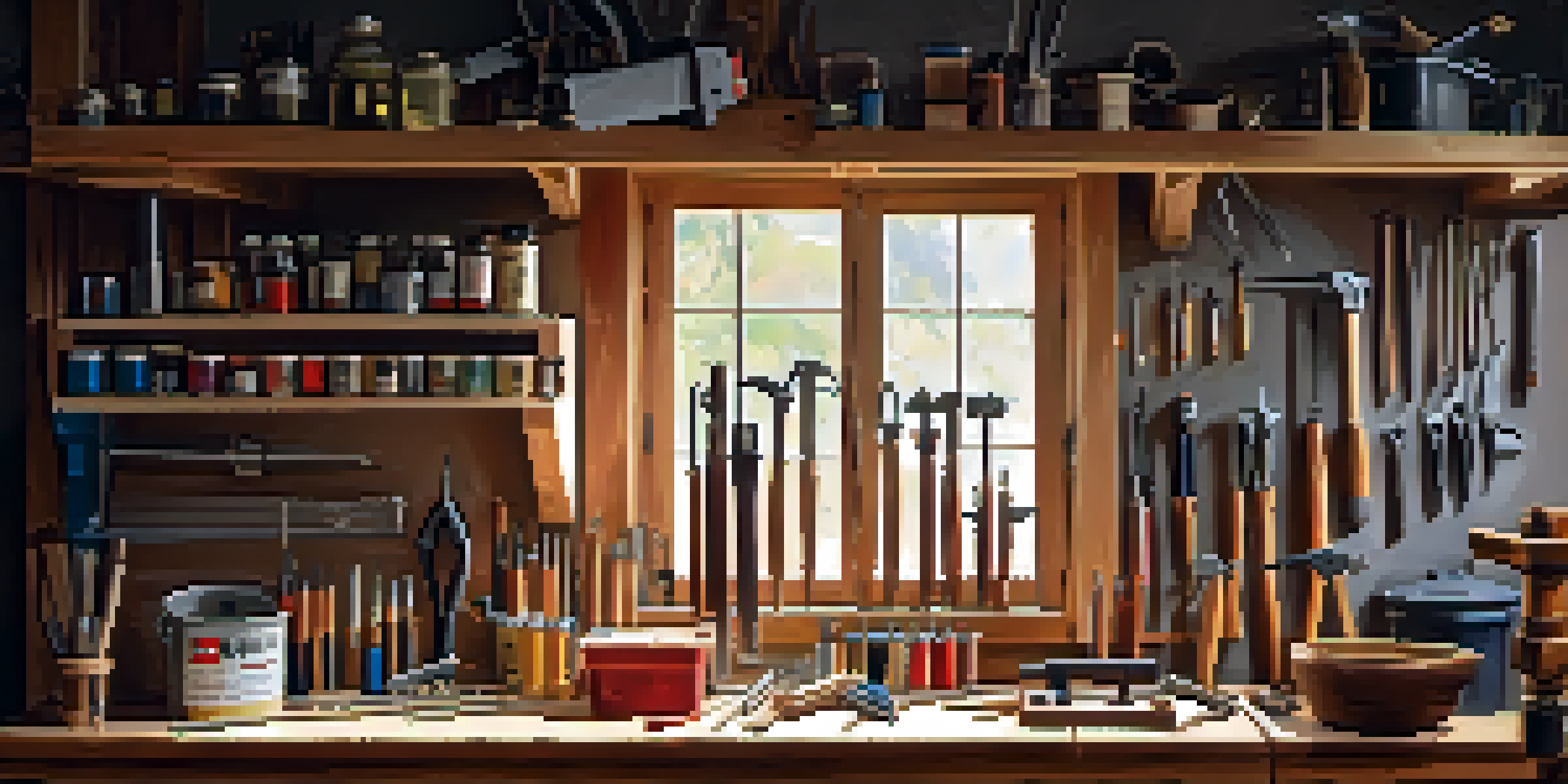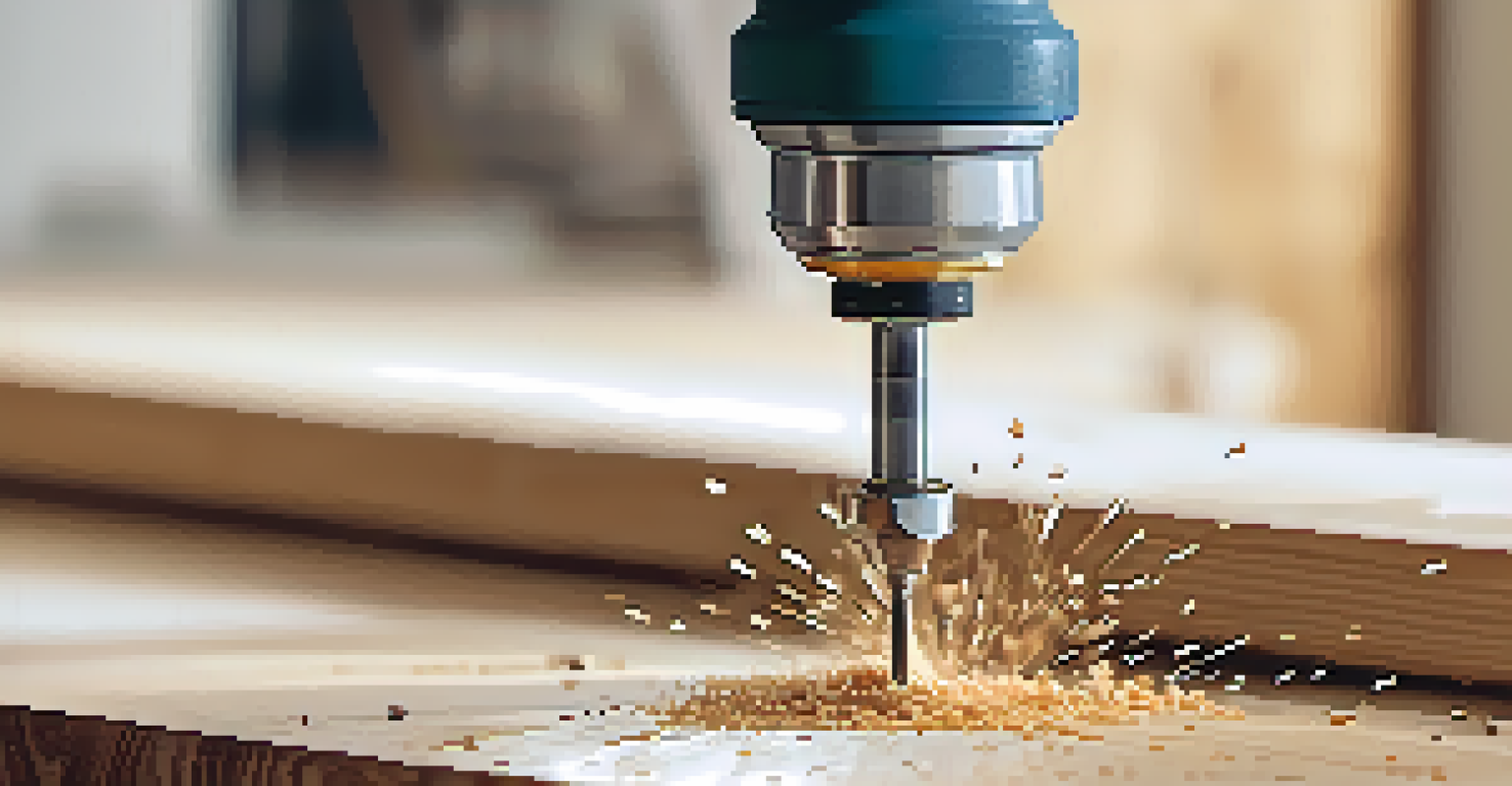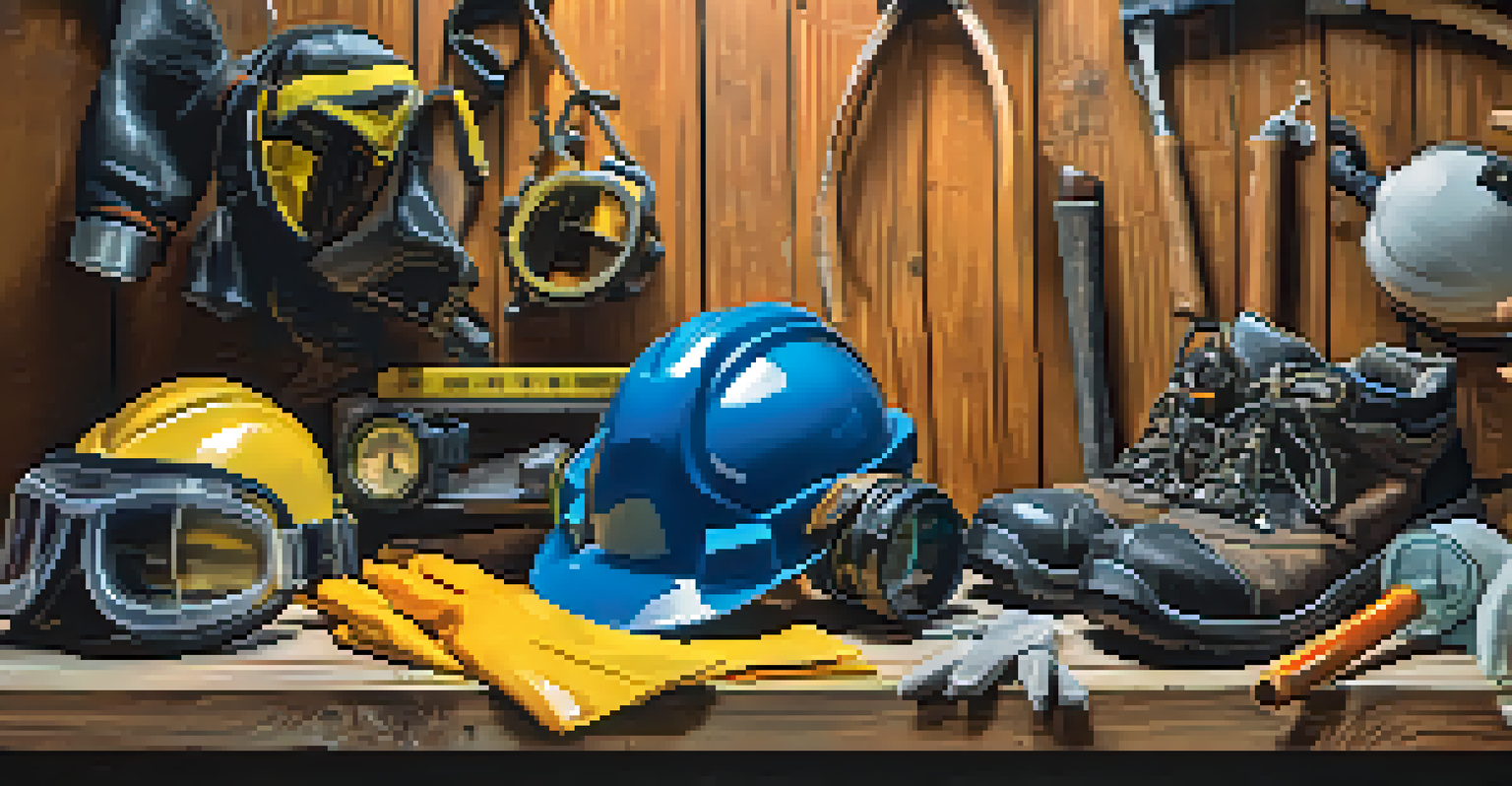Handyman's Essential Tools for Quick Home Repairs

The Importance of a Well-Stocked Tool Kit
Having a well-stocked tool kit is essential for any handyman or homeowner. It allows you to tackle minor repairs and DIY projects without the need for a professional. Imagine being able to fix that leaky faucet or squeaky door on your own, saving both time and money.
The best way to predict the future is to create it.
A versatile tool kit not only empowers you but also gives you the confidence to handle unexpected issues. Whether it’s a loose cabinet door or a picture frame that needs hanging, having the right tools at your fingertips makes all the difference. Plus, it can be a fun way to learn new skills.
Ultimately, a good selection of tools means you can respond quickly to home repair needs, preventing small problems from turning into larger, more costly ones. With a little preparation, you’ll find yourself ready to tackle any task that comes your way.
Essential Hand Tools for Quick Fixes
Every handyman should have a set of essential hand tools that cover the basics. These include a hammer, screwdrivers, pliers, and a tape measure. Each of these tools serves a specific purpose and makes everyday tasks much easier, whether you're hanging a shelf or tightening a loose screw.

For example, a hammer is not just for driving nails; it can also be used to gently adjust misaligned furniture. Meanwhile, screwdrivers come in various types, such as Phillips and flathead, ensuring you're prepared for any screw you encounter. Having the right tool on hand can save you time and frustration.
Essentials for a Handy Toolkit
A well-stocked tool kit enables homeowners to handle minor repairs and DIY projects confidently.
Investing in quality hand tools will pay off in the long run. They’ll stand up to wear and tear, and you'll find yourself reaching for them time and time again as you address those small yet important home repairs.
Power Tools: Making Repairs Easier and Faster
Power tools can significantly speed up your repair projects, making them a worthwhile addition to your toolkit. From drills to saws, these tools help you accomplish tasks that would take much longer with hand tools alone. For instance, a power drill can quickly create holes for anchors or screws, while a circular saw can cut through wood with ease.
An ounce of prevention is worth a pound of cure.
Using power tools might seem intimidating at first, but with practice, they can become invaluable assets. Just think about how much easier it is to install shelves when you can drill holes in a matter of seconds, rather than struggling with a manual screwdriver. Remember, safety is key—always wear proper gear and follow instructions.
Ultimately, the right power tools can transform your approach to home repairs. They allow you to take on bigger projects with confidence, and the time you save can be spent enjoying your newly improved space.
Measuring and Leveling Tools for Precision
When it comes to home repairs, accuracy is crucial. That's where measuring and leveling tools come into play. A tape measure is an obvious must-have, allowing you to get precise measurements for any project, from furniture placement to wall decor.
In addition to tape measures, a level is essential for ensuring that your shelves, frames, and other installations are straight. Nothing is more frustrating than stepping back to admire your work only to find that it’s slightly askew. Using these tools can help you achieve professional-looking results.
Safety Gear is a Must
Investing in safety equipment protects you from injuries during home repairs, making your DIY experience safer.
Investing in good measuring and leveling tools pays off, especially for larger projects. They help you avoid costly mistakes, ensuring that everything fits and looks just right in your home.
Safety Equipment: Don't Skip This Crucial Step
Safety should always be a priority when tackling home repairs. That’s why having the right safety equipment is essential. A pair of safety goggles, gloves, and a dust mask can protect you from injury and keep you safe while you work.
For example, when using power tools, goggles can protect your eyes from flying debris, while gloves can shield your hands from sharp edges. A dust mask is also important when sanding or cutting, as it helps you avoid inhaling harmful particles. Taking these precautions can make your DIY projects much safer.
In essence, investing in safety gear is just as important as investing in your tools. By prioritizing safety, you can focus on getting the job done without worrying about potential hazards.
Organizing Your Tools for Easy Access
An organized workspace can make all the difference when it comes to efficiency in home repairs. Consider investing in a tool chest or pegboard to keep your tools neatly arranged and easily accessible. This simple step can save you time and frustration when you're in the middle of a project.
For example, if you know exactly where your hammer is located, you won’t waste precious minutes rummaging through a cluttered drawer. Keeping your tools organized not only helps you find what you need quickly but also helps you keep track of your inventory, so you're never caught short.
Know When to Call a Pro
Recognizing the limits of your skills is crucial to ensuring safety and quality in complex home repairs.
Ultimately, a tidy workspace fosters productivity. An organized setup allows you to focus on the task at hand, making your home repairs quicker and more enjoyable.
Common Home Repairs You Can Handle Yourself
Once you have your tools ready, you'll be surprised at how many common home repairs you can tackle on your own. From fixing leaky faucets to patching drywall, many tasks are easier than they might seem. With a little guidance and the right tools, you can confidently take on these projects.
For instance, replacing a toilet flapper is a straightforward task that can save you money on your water bill. Similarly, learning how to unclog a sink or replace a light fixture can empower you to maintain your home without always relying on professionals.

The satisfaction of completing these repairs yourself is incredibly rewarding. Not only do you save money, but you also gain valuable skills that you can apply to future projects.
When to Call a Professional for Help
While many home repairs are manageable on your own, there are times when it's best to call in a professional. Complex electrical work, plumbing issues, or structural repairs often require specialized knowledge and expertise. Knowing your limits is key to maintaining safety and ensuring quality work.
For example, if you're dealing with a major leak that could cause water damage, it might be wise to call a plumber rather than attempting a DIY fix. Similarly, electrical work can be dangerous, and hiring an electrician can save you from potential hazards.
In conclusion, while DIY repairs are fulfilling and cost-effective, it’s crucial to recognize when a job is beyond your skill level. Trusting professionals ensures that your home remains safe and well-maintained.